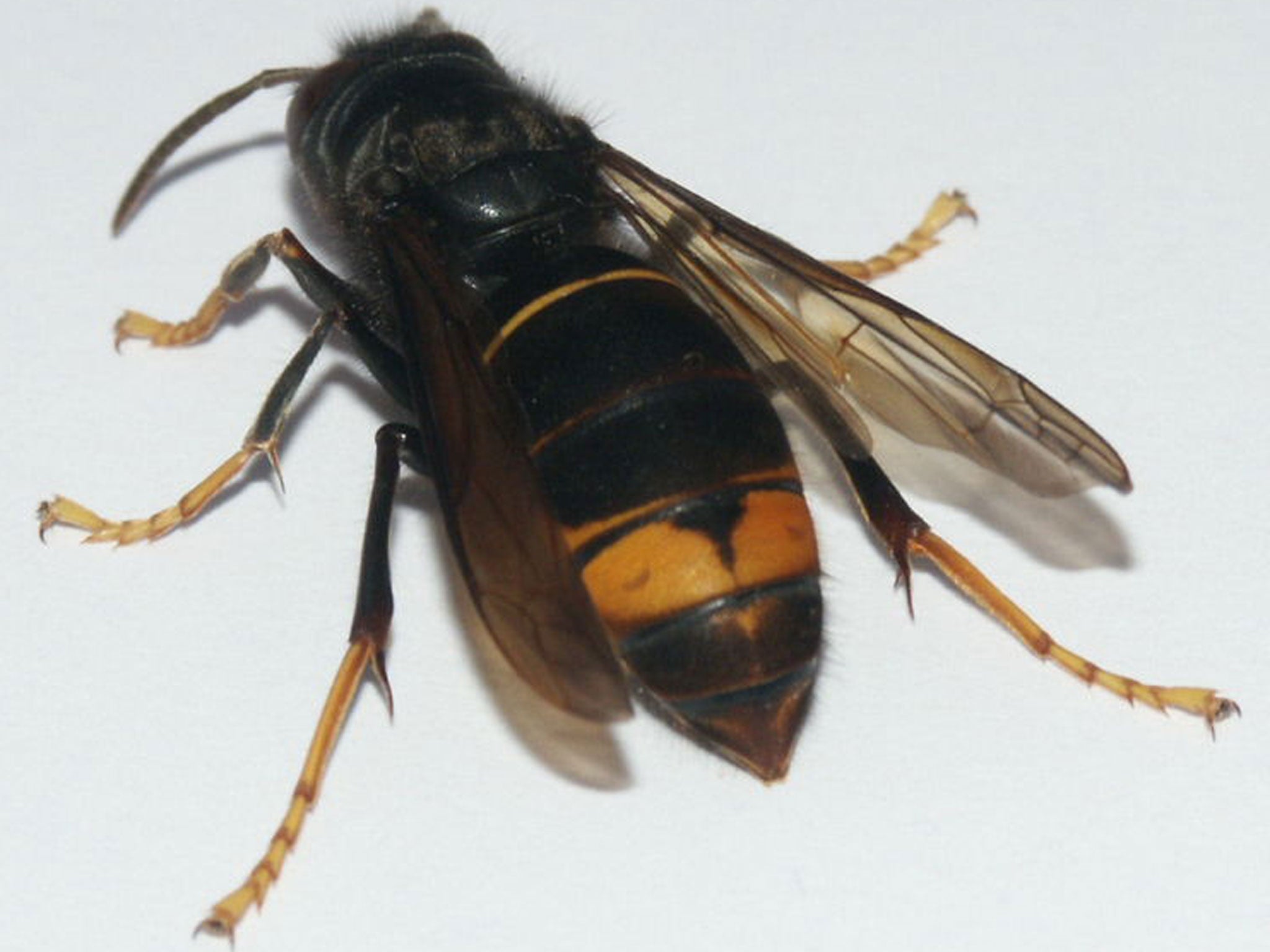Asian hornets could be heading to Britain
Vespa Velutina has already killed six in France, according to report

Your support helps us to tell the story
From reproductive rights to climate change to Big Tech, The Independent is on the ground when the story is developing. Whether it's investigating the financials of Elon Musk's pro-Trump PAC or producing our latest documentary, 'The A Word', which shines a light on the American women fighting for reproductive rights, we know how important it is to parse out the facts from the messaging.
At such a critical moment in US history, we need reporters on the ground. Your donation allows us to keep sending journalists to speak to both sides of the story.
The Independent is trusted by Americans across the entire political spectrum. And unlike many other quality news outlets, we choose not to lock Americans out of our reporting and analysis with paywalls. We believe quality journalism should be available to everyone, paid for by those who can afford it.
Your support makes all the difference.Swarms of Asian hornets which have already killed six in France could be on their way to Britain, experts have warned.
Southern parts of England are likely to be among the first hit by the invasive non-native species, which may be able to cross the Channel from France.
The hornet arrived in France in 2005 and could reach England soon, according to the House of Commons Environmental Audit Committee (ECA) report on invasive, non-native species.
Queens are typically up to 30mm long, whereas worker bees grow up to 25mm. They have an entirely dark brown or black velvety body, bordered with a fine yellow band.
The hornets have a toxic sting which can potentially cause anaphylactic shock and kidney failure. The “highly aggressive” hornets are a predatory species and pose a significant threat to other native bees, wasps and pollinators.
The ECA report discussed the Asian hornet as part of a new blacklist of invasive alien species being drawn up in order to limit environmental and ecological damage across Europe.
The Non-native Species Secretariat (NNSS) is helping the Environment Agency and Natural England to develop Rapid Response Plans for species, as well as contingency plans for the arrival of the Asian Hornet, according to the report.
Britain has already implemented an alerting system for the Asian hornet. Those who believe they may have spotted the species are asked to email pictures and details of the sighting to the NNSS.
On its website, the British Beekeepers Association has warned anyone who finds an active hornet’s nest not to provoke or disturb it “under any circumstances”.
A spokeswoman from the Department of Food, Environment and Rural Affairs (Defra) said after the ECA report was released: "This report recognises we have the most advanced approach across Europe in tackling the threat of invasive non-native species, helping identify and prevent the spread of plants and animals that don't belong here.
"Through targeted surveillance, working with industry, voluntary groups and the public as well as strict controls at the border, we are able to take swift action on the ground, including eradication, or if not possible, containment.
"We keep our approach under review and are working with European partners on measures to strengthen the response across borders."
Join our commenting forum
Join thought-provoking conversations, follow other Independent readers and see their replies
Comments